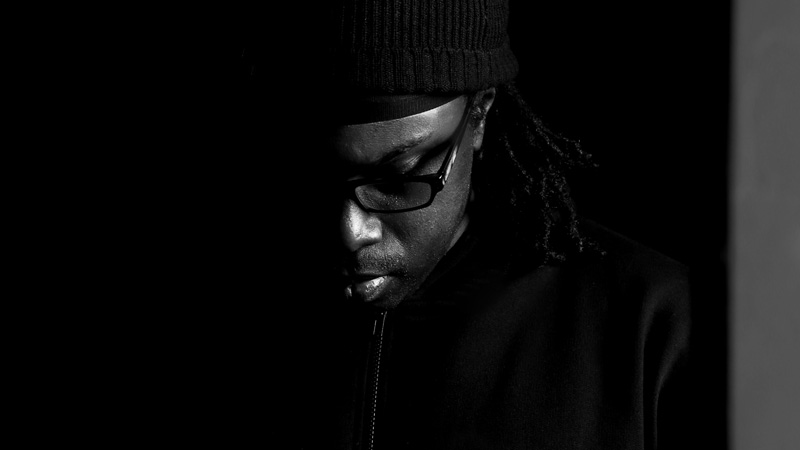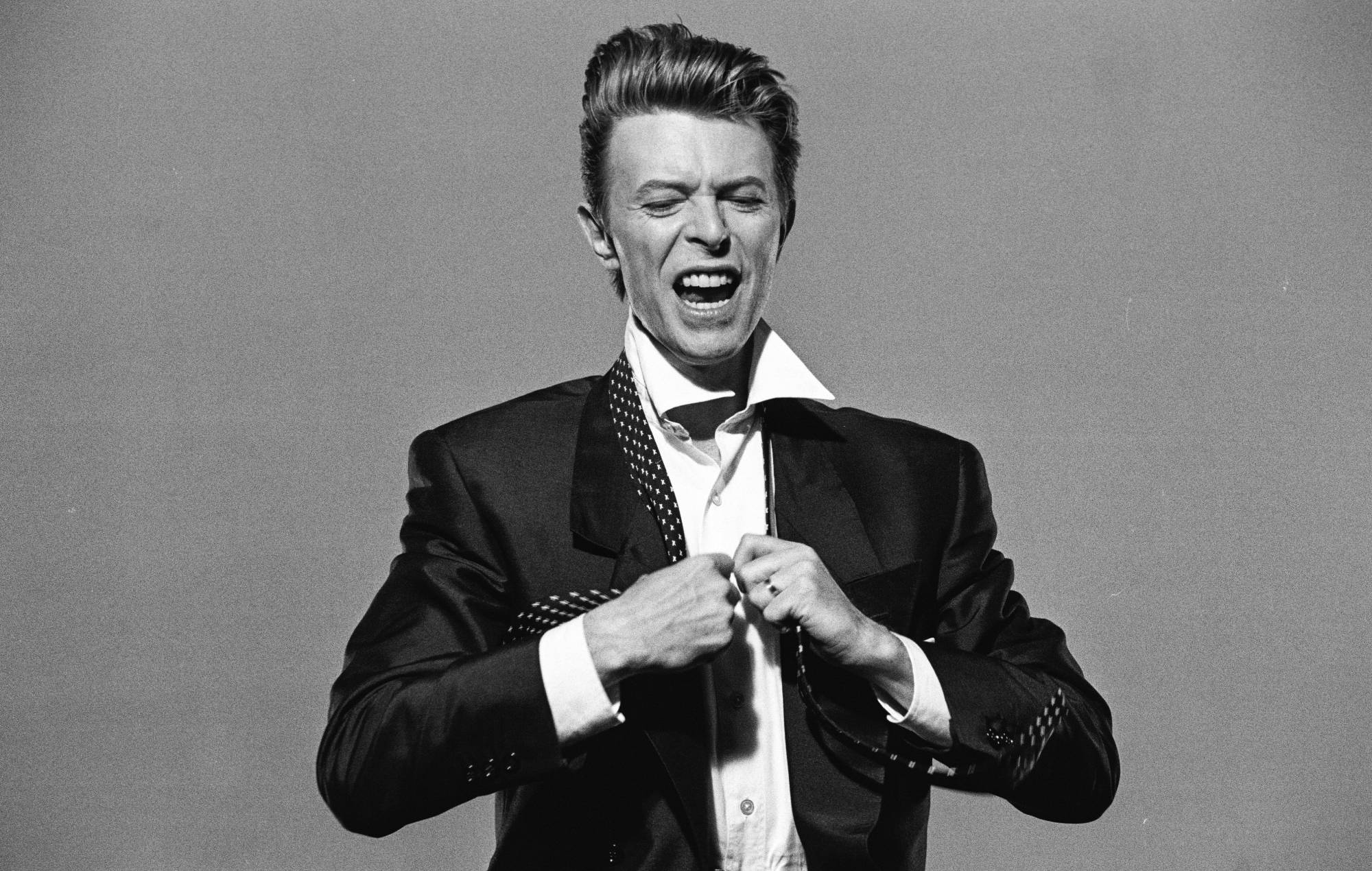On Saturday 21st November, we're are honoured to welcome two of the most respected names in deep house to Egg LDN for the next DJ Mag Sessions. (got tickets?) One hailing from Detroit's first wave, the other a more recent New York talent inspired by it.
DELANO SMITH
Detroit first wave don still strong

Born in Chicago and raised on the west side of Detroit, Delano Smith, while not part of Derrick May, Kevin Saunderson and Juan Atkins' now-rarified 'Belleville Three', is nonetheless a true Detroit original (bar the city of his birth, of course).
He was from that same stock, though, the splinter of that generation which was inspired by the legendary Electrifying Mojo, the Michigan radio DJ who brought the sounds of both Prince, Funkadelic and Kraftwerk together, and unknowingly laid the seeds for what became techno and would over decades spread its tendrils across the globe.
But it was under the tutelage of the equally legendary WLBS DJ Ken Collier that he started DJing in the early '80s, making his break at the L'Uomo club on Friday nights, where he met the likes of May and Eddie Fowlkes on the dancefloor. He was there in 1987 when house music first gripped Detroit, and the likes of Chez Damier, Alton Miller and Jeff Mills got themselves involved.
But his college education brought him out of Detroit, and perhaps out of that initial rush of talent. It wasn't until the early '90s that he returned to the scene, at which point he embraced it. He's been a pivotal force ever since, and while Detroit's exports have left the city itself sometimes impoverished in terms of its own club scene, he says things are coming back.
“The scene is coming back at the moment in a big way,” he says. And he's someone who should know. “Now, there’s something to do every weekend. With social media the world has gotten a lot smaller and I think folks in Detroit are starting to broaden their musical tastes.
I’m starting to perform there a lot more these days. Promoters are booking more interesting DJs all the time. It seems like everyone is doing their own little part to keep it fresh. Completely different than it was some three or five years ago. I’m going to do what I can to help the scene here grow.”
As such, he reckons that the scene is in a good place. He cites the likes of South London's Wbeeza as beacons of hope. “I’ve been to his studio several times and am blown away by this young guys grooves and
unorthodox workflow,” he says. “The stuff I hear there is never released, it seems, and that’s some of his best work. If he stays consistent, he’s definitely one to look out for. “Folks are starting to realize what’s crap and what’s not, but there’s always a few clubs and scenes where it’s not about the music, but the spectacle.
With the resurgence of vinyl, analog gear and more live performances, I think producers will soon take the music in very new and interesting directions.” His most recent work has found him working closely with Berlin's Sushitech, established in 2005 by Yossi Amoyal.
“I met Yossi through an email or Myspace," he says. "We talked about a remix for his label at first but after we met at Panorama Bar after one of my DJ sets there our relationship took a different turn.
I eventually stayed at his flat during one of my early euro tours and we just talked about the scene in Europe and music the entire time. He shed light on a lot of music and a scene that I was not familiar with.
"I would say because of him, I’m a very different DJ and producer than I was, say, 10 or 15 years ago. He spoke of building something that made sense and that was family oriented. And now Sushitech is just that. Mostly all the producers on the label know and respect each other a great deal and we all keep in touch in one way or another. I appreciated his vision and respected his opinions about my music and we have grown together I think. Yossi is one of my best friends. Family, really.”
His own label, Mixmode, has been running since the early 2000s, and there's some releases planned soon, one likely a collaboration between Smith and French producer Brawther. “And of course I’ll be dropping a piece on the imprint very soon,” he says. Just as long as it is very soon.
FRED P AKA BLACK JAZZ CONSORTIUM
Motor City-inspired New York sounds

Ever since Fred Peterkin – aka Fred P – emerged on the house scene around 2008, his unctuous, intelligent machine music has oozed that warm, unmistakable soul of the Motor City. But there's just one small issue with that — the fact that he's New York, born and bred.
Flatbush, Brooklyn, to be exact. It's a continuing assumption, it seems. “For some reason people do think I'm from Detroit but I'm not, I was born and raised in Flatbush,” he says. “But I love Detroit music. It's very forward-thinking and has always influenced me. Some of my hero's are from Detroit, it's kind of a honour to be in that conversation. But no, I am from BK NYC.”
It was through the legendary Kiss Master Mixes on New York's 98.7FM frequency on a Saturday night that he was turned towards house music. Those Kiss Master Mixes had run from the early '80s, when the likes of Shep Pettibone would bring disco and proto-house to the airwaves, then latterly the likes of New York legend Tony Humphries.
Mention those New York veterans like Humphries, Masters at Work, Blaze, FK, the Shelter Crew, and Peterkin is energised. “All of the above,” he says. “All legendary and all have helped to shape mould and solidify what we all enjoy today. What's amazing is that all of them are still out there, still spreading music and vibes.
“I guess My favourite DJs back then were Tony Humphries and John Robinson. Both would do really long transitions between tracks often creating another layer of excitement. It's purely in the moment. I admire them for that and have done ever since. I attempt to do the same in my own way.”
Production was an obvious next step. He'd been steeped in hip hop from a young age, making his own mixtapes and edits with turntables and cassette decks, and then later picking up a Tascam four-track to take things up a notch. “I seriously started to make music in the early '90s.
I was a DJ already, so production was natural. I didn't think of it a leap. I took it very quickly. But my first productions were not very good,” he admits. “If you can imagine trying to put all your ideas in one track. It was a very noisy, confusing effort to find my sound. Out of that confusion came what you hear today. But it's still evolving.”
By the time his debut release came — on his own label, Soul People Music — he'd clearly honed those skills down. People quickly took notice. “I did a remix for [Underground Quality luminary] Jus Ed's wife Jenifa Mayanja.
It got his attention and we began talking and developed a close relationship. We have been friends ever since. “Ed thought me how to read a room when playing out of my element,” he adds. “He also taught me how to make records. I am internally grateful for that.”
Now he writes as both Fred P and Black Jazz Consortium (the latter almost always on his own imprint). “Under Black Jazz Consortium I do more concept driven projects, like an album with a particular feel and aim. Fred P is more open and can be deep house, future jazz ambient... that moniker is open as far as genre,” he says.
It helps, perhaps, that he's a self-confessed workaholic. But in the best way possible. There's already three Black Jazz Consortium albums to his name, and another four as Fred P, last year's '5', recorded for Mule Musiq, being some of his finest work to date.
“It was a total surprise how that turned out because it's not your average dance album and the people totally got into it,” he says. But it's not always been easy. He's talked in the past about giving up partying for the good of his health. Now he's getting to where he needs to be.
“It has not been easy by any stretch of the word,” he says. “Do not be fooled by what you see. I am grateful to be on a level to even have this conversation, but it has not been a cake walk at all and still isn't. I work for it everyday.”



